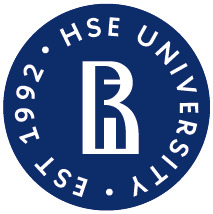The Russian International Affairs Council (RIAC)

The Russian International Affairs Council (RIAC) is a non-profit academic and diplomatic think tank that was founded by the Russian Federation Ministry of Foreign Affairs and the Ministry of Education and Science in 2010.
RIAC activities are aimed at strengthening peace, friendship and solidarity between peoples, preventing international conflicts and promoting conflict resolution and crisis settlement.
RIAC operates as a link between the state, scholarly community, and civil society in an effort to find foreign policy solutions to complex conflict issues. The RIAC mission is to facilitate Russia’s peaceful integration into the global community, partly by organizing greater cooperation between Russian scientific institutions and foreign analytical centers/scholars on the major issues of international relations.
Our aim is to provide analyses and forecasts of global risks and opportunities for the benefit of Russian diplomacy, businesses, educational centers, public organizations, and their foreign peers.
RIAC:
● Initiates scholarly studies of the most burning issues of world politics;
● Commissions academic and independent research centers to produce analyticaland information surveys;
● Undertakes complex research projects in the interests of governmental bodies,businesses, and international organizations;
● Carries out research projects in collaboration with leading Russian and foreign “think tanks”.
National Research University – Higher School of Economics

The Higher School of Economics is a research university that carries out its mission through research, instruction, design, expert analysis, as well as social and cultural activities based on international academic and organizational standards.
We see ourselves as part of the global academic community and believe that international partnerships and interaction among global universities are key elements of our advancement.
As a Russian university, we work for the benefit of Russia and its citizens. The basis of our activity lies in theoretical and empirical research and the spread of knowledge. Without compromising thequality of research or limiting the teaching of basic scientific knowledge, we strive to make a practical contribution in building a new Russia.
Our university is a team of researchers, staff members and students. We have an internal commitment to maintaining high academic standards in our activities, and we strive to provide the most favourable conditions for each of our team members to develop.
Although we hold different positions on both past and contemporary problems, we are united by the following values:
● Pursuit of truth;
● Cooperation and interest in one another;
● Honesty and openness;
●Academic freedom and political neutrality;
●Professionalism, self-discipline and responsibility;
●Active public position.
MGIMO University
The Moscow State Institute of International Relations, better known to the world and Russia as MGIMO, its Russian language acronym, was founded in 1944.
MGIMO University is Russia’s most prestigiousand internationally recognized educational and research university centre offering education at all three higher professional levels (Bachelor-Master-Postgraduate) as well as programmes of pre-university and continuing professional education (MBA and professional retraining). The University’s educational system comprises eight Schools and six Institutes based on its core educational programmes.
Since 2012, MGIMO was authorized to establish internal standards and requirements for its educational programmes. Today, education in MGIMO is provided by more than 1,300 professors of whom more than fifty percent have either candidate or doctor degrees. The number ofstudents and postgraduates is now approximately 7,000 people.
A key priority of MGIMO international policy is the development of bilateral and multilateral international relations, and the promotion of educational and scientific exchange. Cooperation agreements with more than 190 foreign partners from 57 countries – universities, diplomatic academies, institutes, and research centers – help to ensure the highest global standards in educational and research work.
The Institute of International Studies, with its eleven research centers, accumulates the scientific and intellectual output of the University, and conducts extensive research and expert analysis across all major areas of world politics and international relations. MGIMO has ranked 10th in the world’s ‘Best University Affiliated Think Tanks’ category in the prestigious ‘2013 Global Go-To Think Tank Report’ conducted by the University of Pennsylvania.
Council on Foreign and Defense Policy (CFDP)

The Council on Foreign and Defense Policy (CFDP) is a Russian NGO established in 1992. It is arespected non-government analytical center including about 200 prominent and influential politicians, heads of business associations, business leaders, public and political activists, as well as representatives of defense and security ministries, defense companies, research centers and mass media.
CFDP’s mission is to promote Russia’s development strategy and its foreign and defense policy, as well as to strengthen the state and civil society in Russia. CFDP works with a broad range of national and foreign analysts, leading research centers, state agencies and political parties andorganizations.
CFDP conducts regular informal meetings of its members, organizes conferences, seminars and discussions, and carries out research projects. It is also engaged in information,education and lobbying activities.